Reported Speech Questions
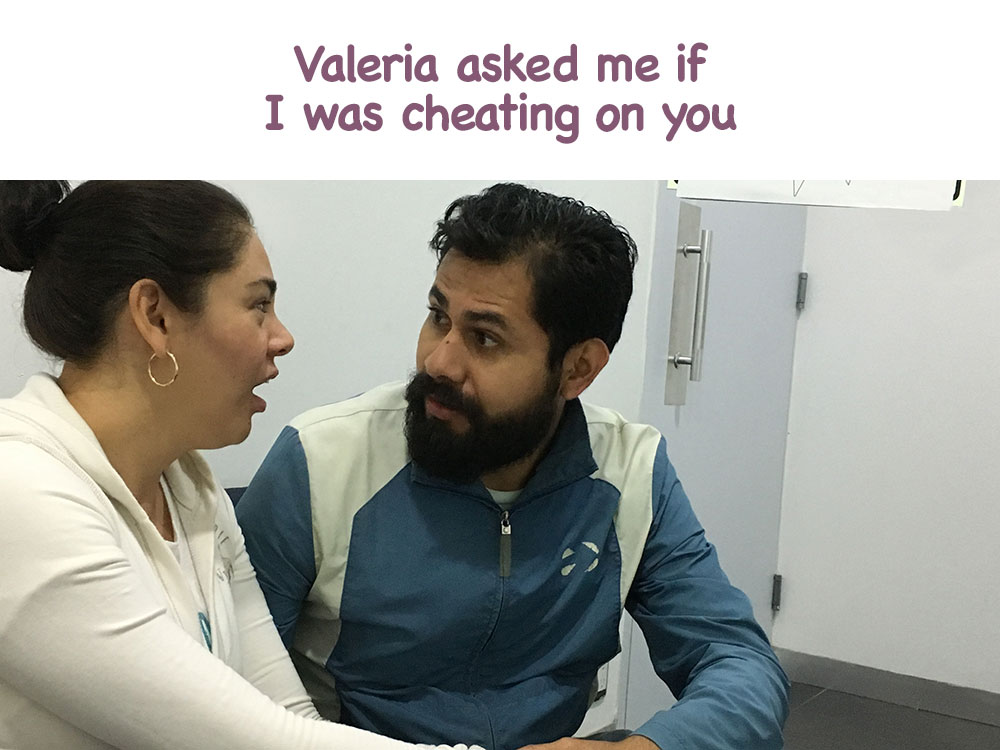
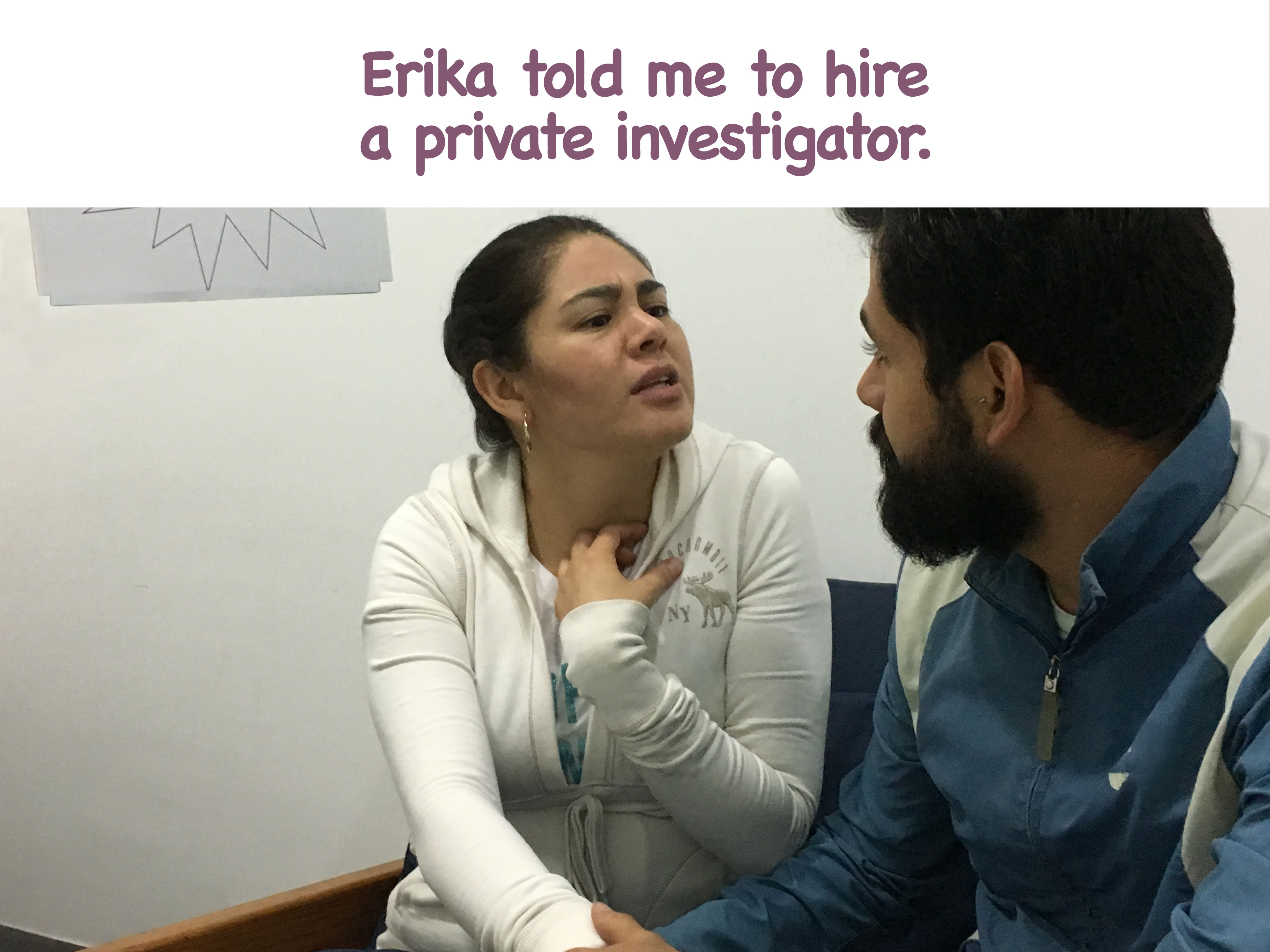
Pérez, L. (2016).
Every day we experience the moment when you or someone else repeats words heard or read before. How are you going to do that in English?
Well, before you are in this situation with no sufficient preparation, I suggest you study how to form Reported Speech, especially when what you want to report is a question.
In this topic, first, you will get to study the way we report questions in English. There you will have all the information you need to report on your own almost any question you hear.
After that, you will be guided through some training exercises, to help you get the point of what you are expected to do.
Then, you will be given a situation in a private investigation office, where you will be reporting questions under different circumstances such as providing explanations to a friend, a listening and a reading.
Finally, you will have the chance to check your understanding by doing some wrap-up exercises.
Please be aware that, at this point, it is essential that you already know the necessary forms we use in Reported Speech (in affirmative and negative sentences), and that you are familiar with all the grammar structures, pronouns, and common time expressions in English. You can also check the section Reported Speech –affirmative and negative.
By the end of this topic, you will:
Make the changes from direct to indirect speech in interrogative sentences using the structure to report the information.
When you want to report a question, it is no longer a question, so you need to change it into an affirmative sentence in the report.
For example:
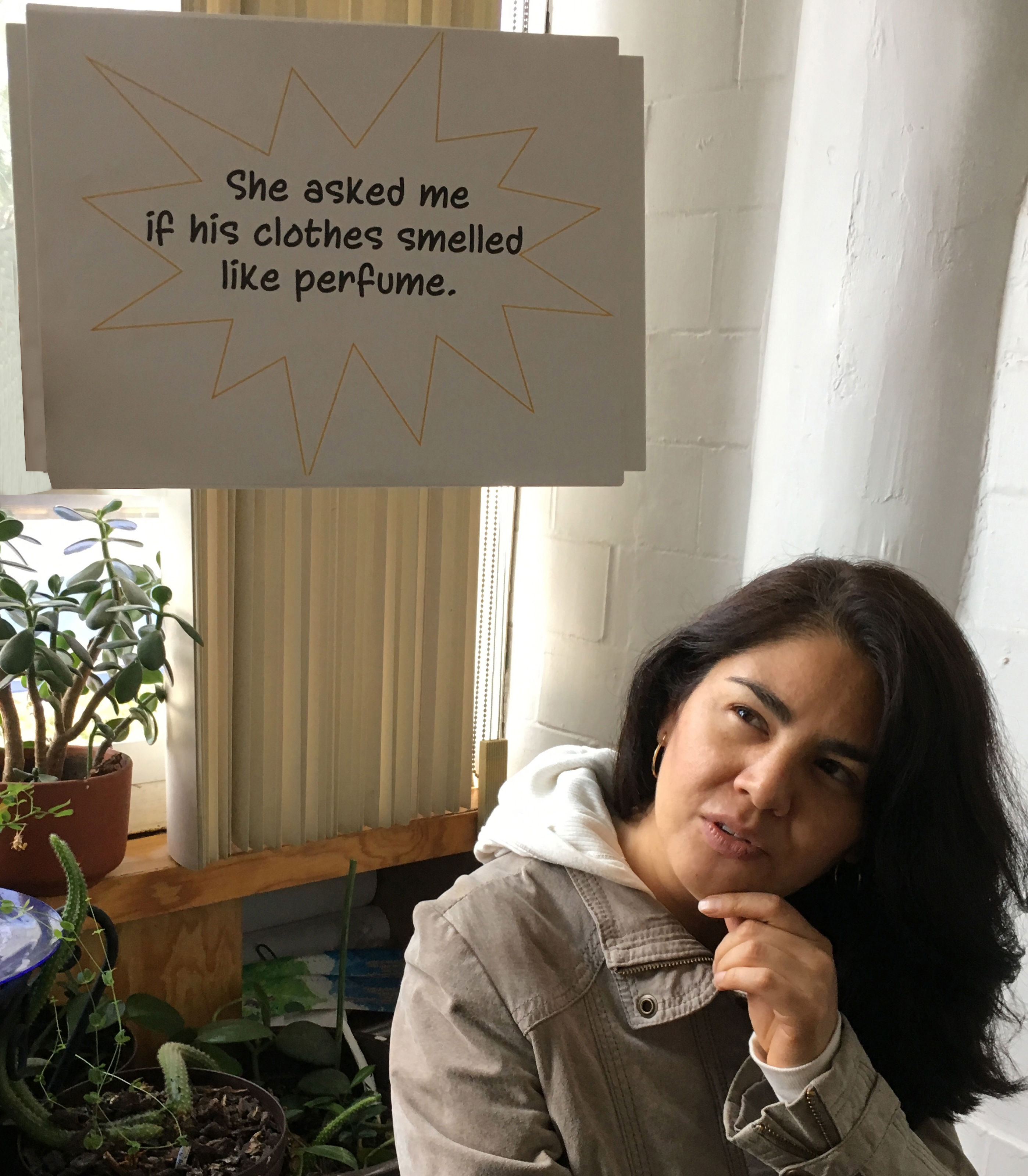
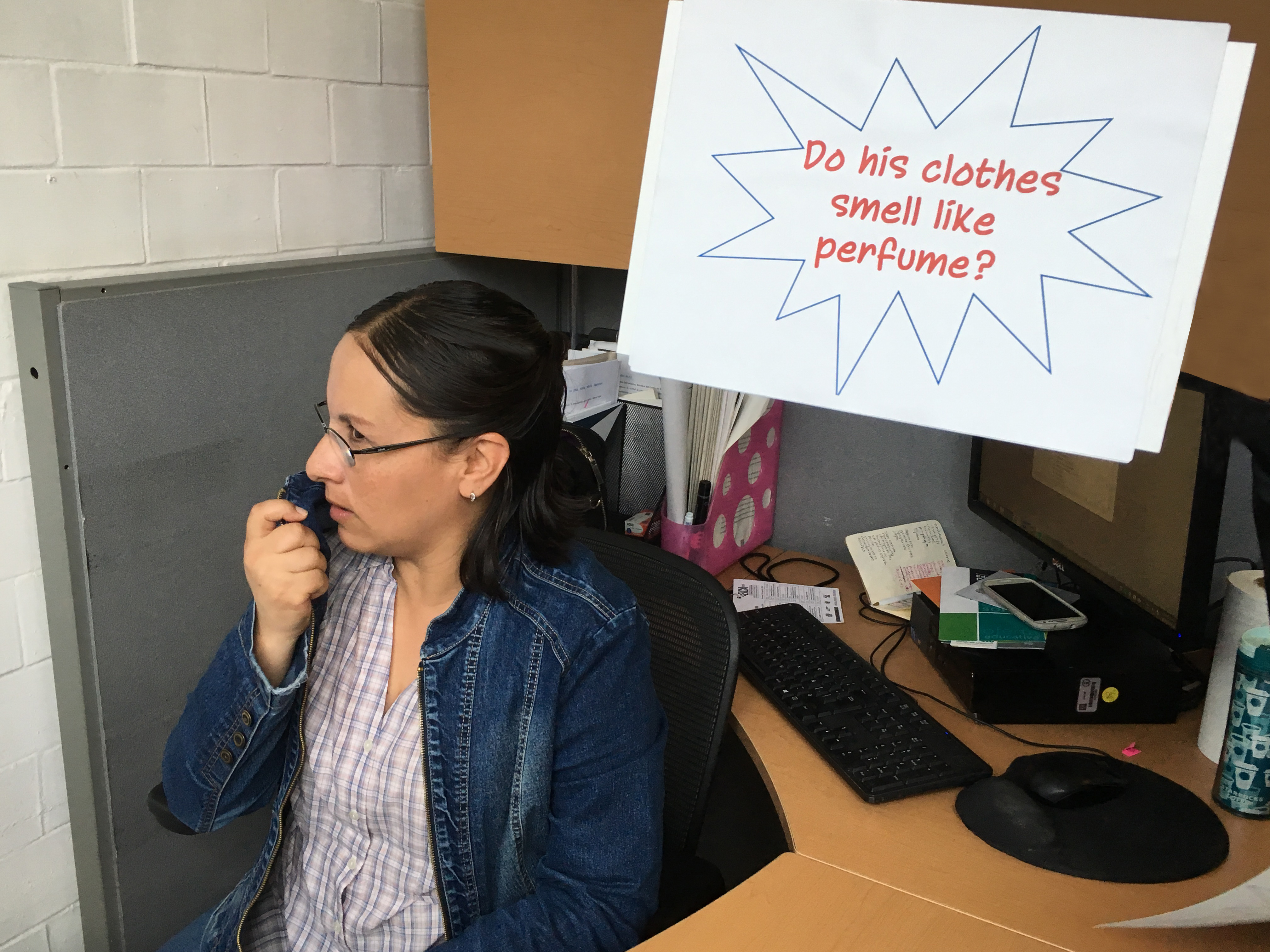
Perez, L. (2016). Reported speech.
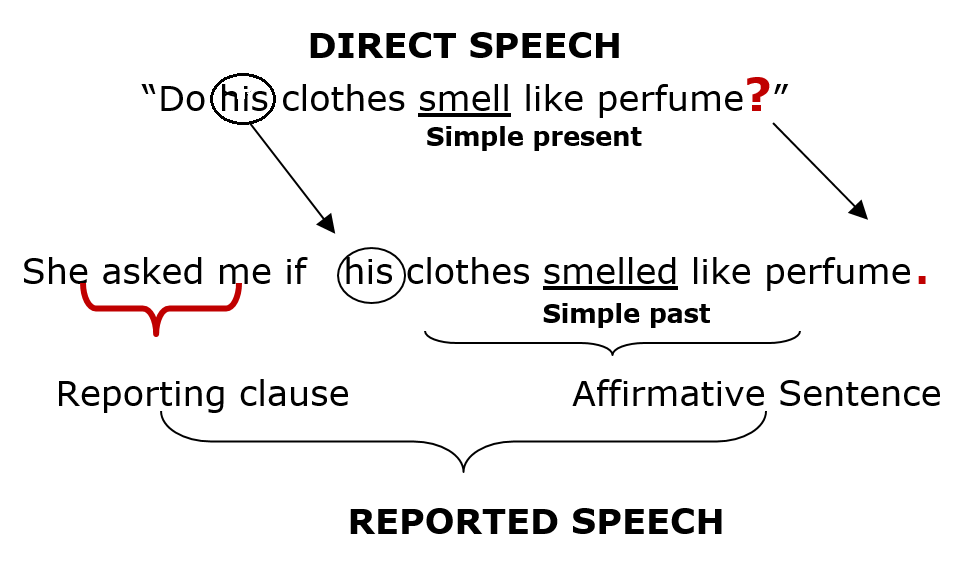
Perez, L. (2016). Reported speech.
It is fun, once you have learned how to use the rules; everything will be so easy to communicate. Read the following chart about the steps you have to follow to form the Reported Speech in a question:
1. Always use the reporting clause at the beginning (For example She asked me)
2. If or Question Word:
a) If the question starts with an auxiliary, use IF instead of the auxiliary.
b) If the question starts with a question word, keep the question word in the report.
3. Make two changes here:
a) Change the structure (present to past, past to past perfect, etc.)
b) Make it an affirmation.
c) Forget about the question mark? ?
Instead, you will use a simple.
Have a look at the examples now:
1. Indirect question:
“Where do you think he is?”
Step #1:
She asked her
Step # 2:
She asked her where
Step #3:
The original question is in simple present (DO+Verb in simple form), so the change goes to simple affirmative past in the report (Subject+ verb in the past).
She asked her where she thought he was
2. Direct question.
“Has he been cheating on you?”

Step #1:
She asked her
Step #2:
She asked her if
Step #3:
The original question is a present perfect form, the corresponding change is past perfect but in affirmative because remember we are reporting, not making a question:
She asked her if he had been cheating on her.
Look at this chart with the corresponding changes:
S= Subject
V.S.F= Verb in the simple form
Q.W.= Question Word
C= Complement
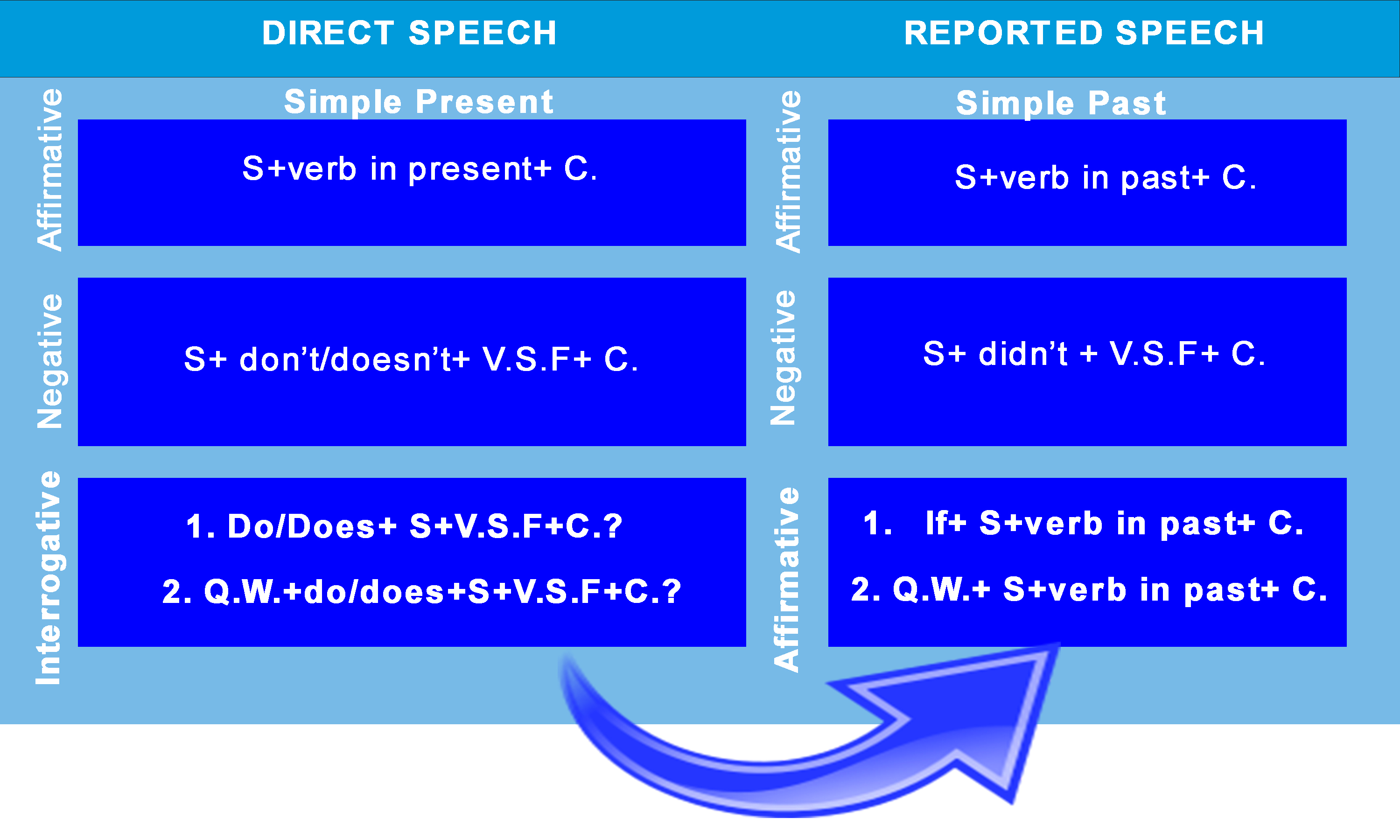
When we report a question IT’S NO LONGER A QUESTION!
Take a look at this chart with the most simple changes when reporting a question:
S= Subject
V.S.F= Verb in simple form
Q.W.= Question Word
C= Complement
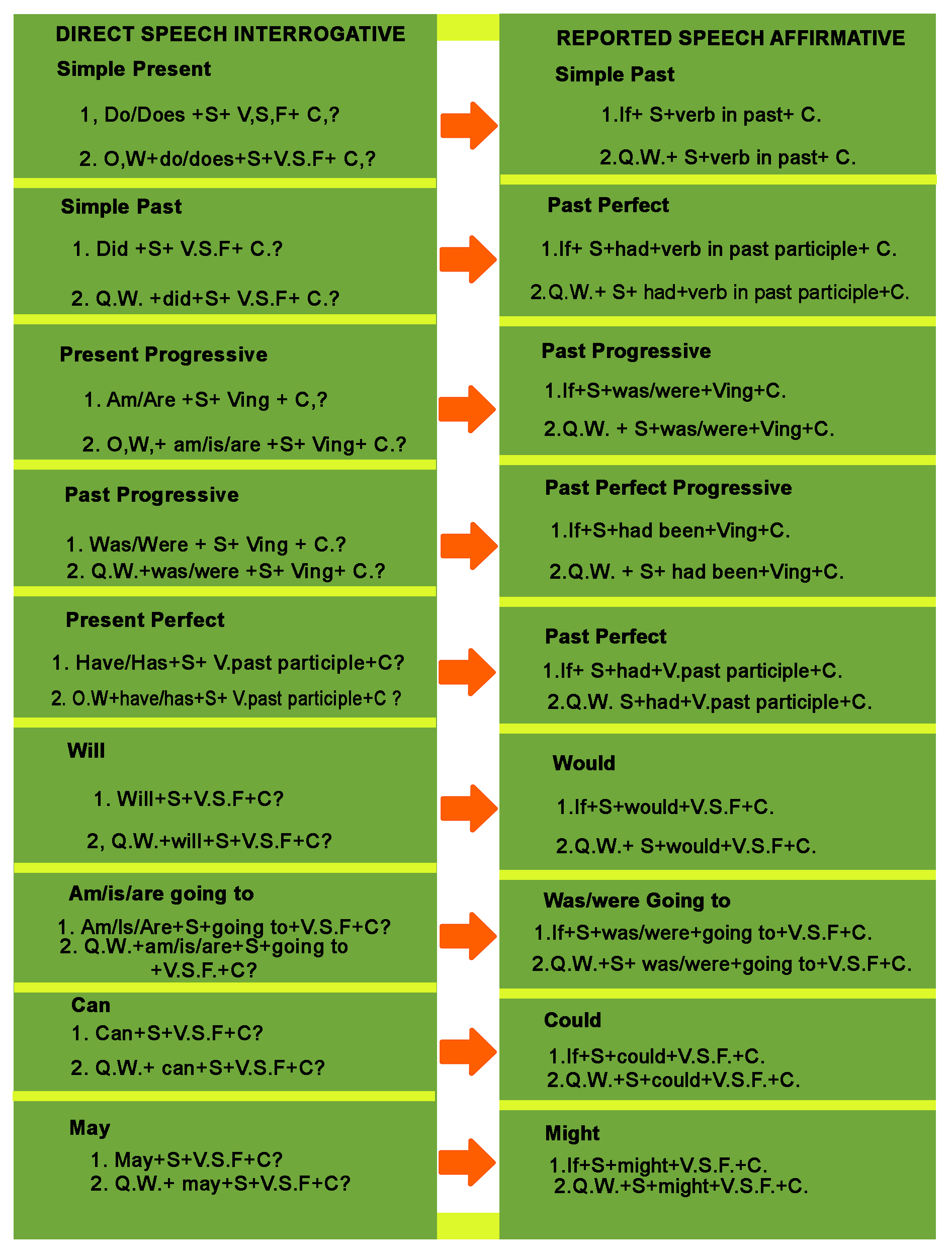
According to the information you have now, let’s try a straightforward report. Use the example as a model.
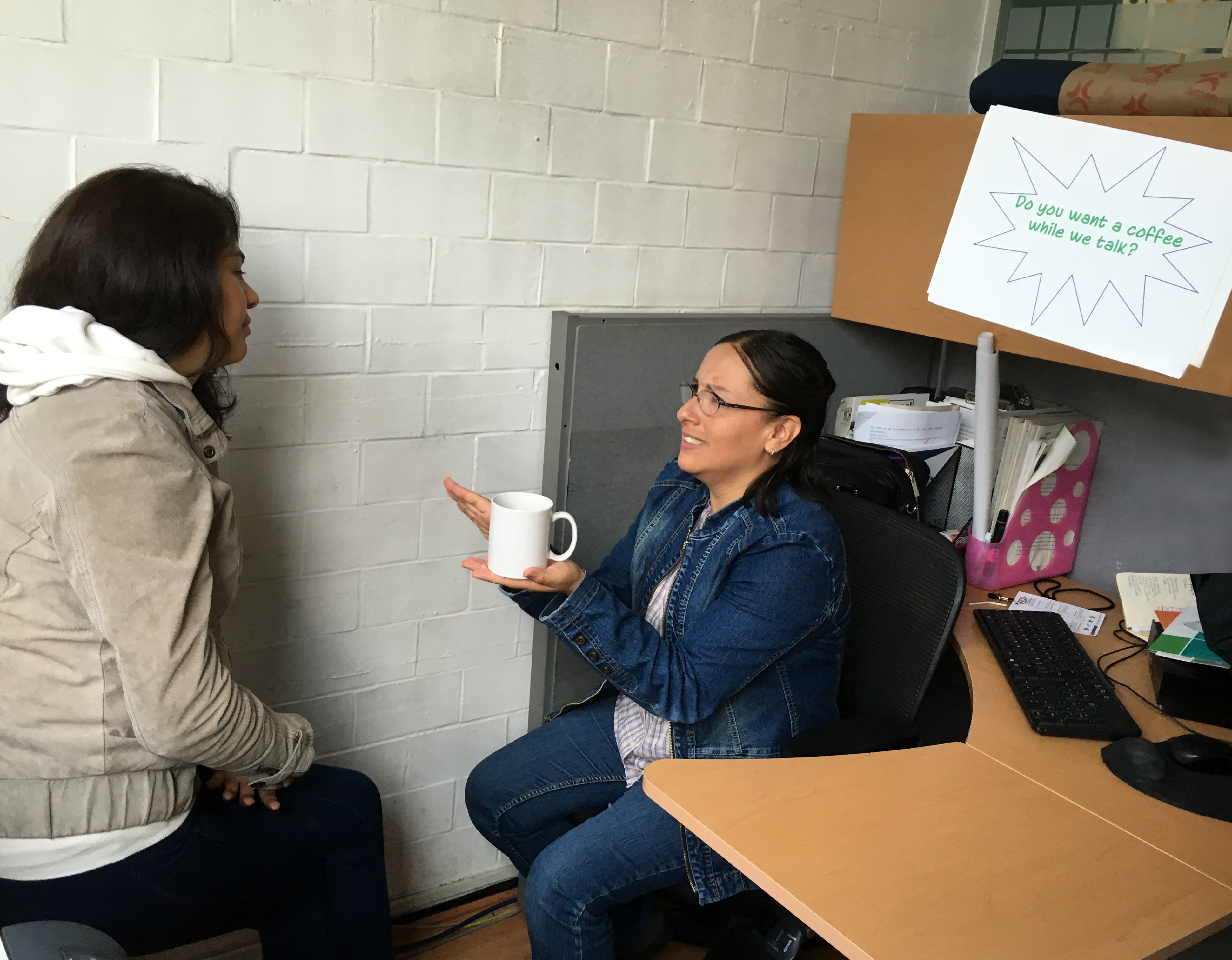
Perez, L. (2016). Reported speech.
• Example:
Sandra to Erika:
“Do you want a coffee while we talk?”
• Type of structure:
Simple present (Auxiliary Do+VSF)
• Corresponding change:
Simple Past in affirmative (Subject+verb in Past)
• In case there are complement changes:
We change to They
Step #1 Reporting clause
Sandra asked Erika
Step #2
Use if, or keep the question word. In this case, we use if because the original question starts with an auxiliary (Do)
Sandra asked Erika if
Step #3 Make the corresponding change into affirmative, questions in simple present changes to affirmative Past. In this example, the complement also requires a change from “we” to “they”.
Sandra asked Erika if she wanted a coffee while they talked.
Let's practice a bit
According to what you have learnt so far, chose the Reported Speech form that to the direct speech given.
Reporting questions
The following activities are based on a story. You will be writing reports of some questions, based on the correct grammar changes you have been practising.
Now you are about to go online with your friend Oscar. You are going to tell him what you heard. Use the correct form of Reported Speech to complete the statements given.
Activity 1
In the following exercise, you will read a questionnaire from an investigation between Sandra, the client, and Mr Marcelo.
Sandra is writing in her diary with what the investigator asked her during the interview. Read the questionnaire form and write her diary in 120 words. Use Reported Speech with the correct grammar form to report the questions. You will be evaluated according to the following aspects:
a) I developed the topic according to the Questionnaire Form given.
b) I used Reported Speech according to grammar and mechanics.
c) I used a good organization and format.
d) I showed word choice, sentence variety and structure.
e) I used the number of words indicated.
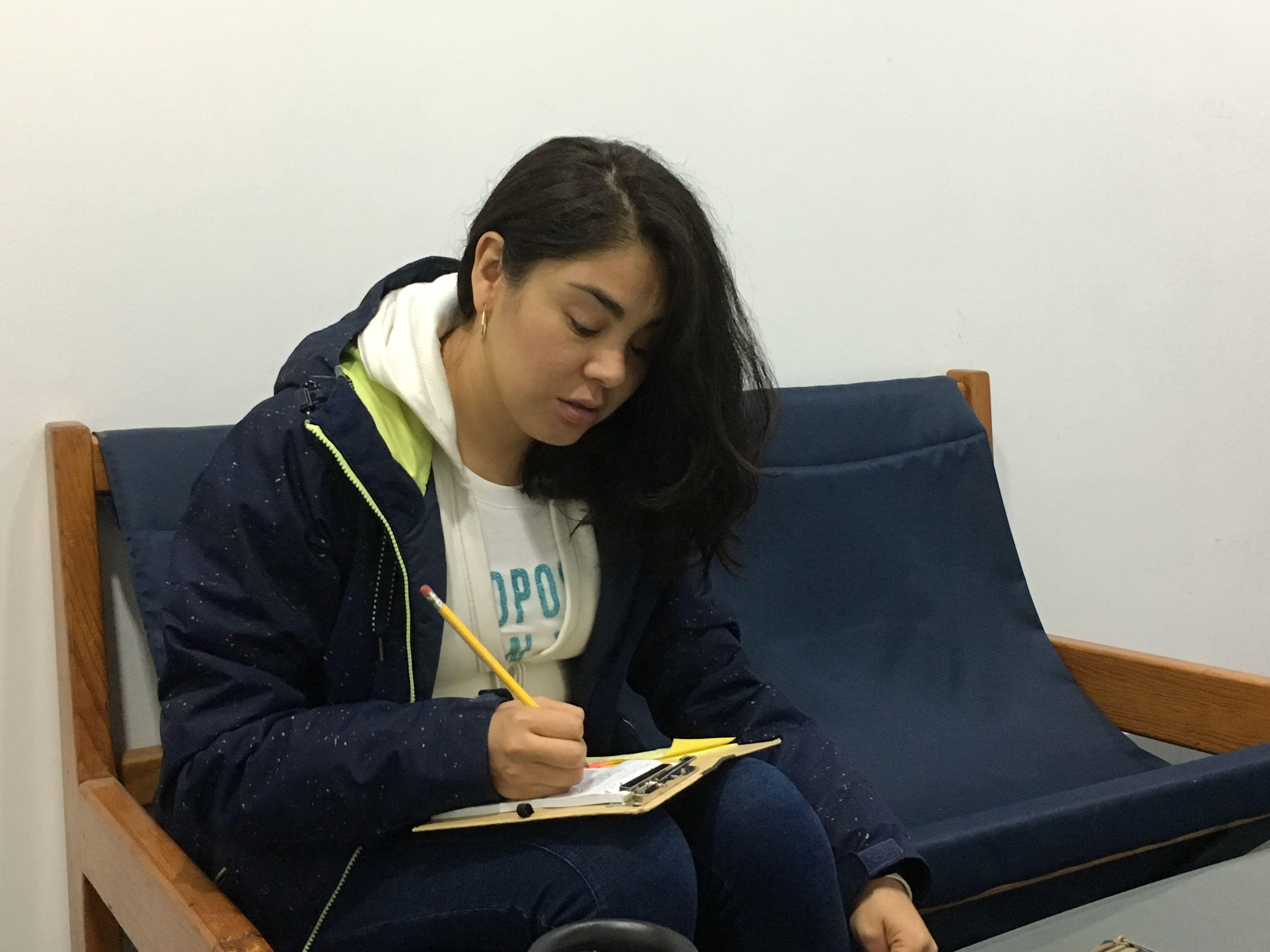
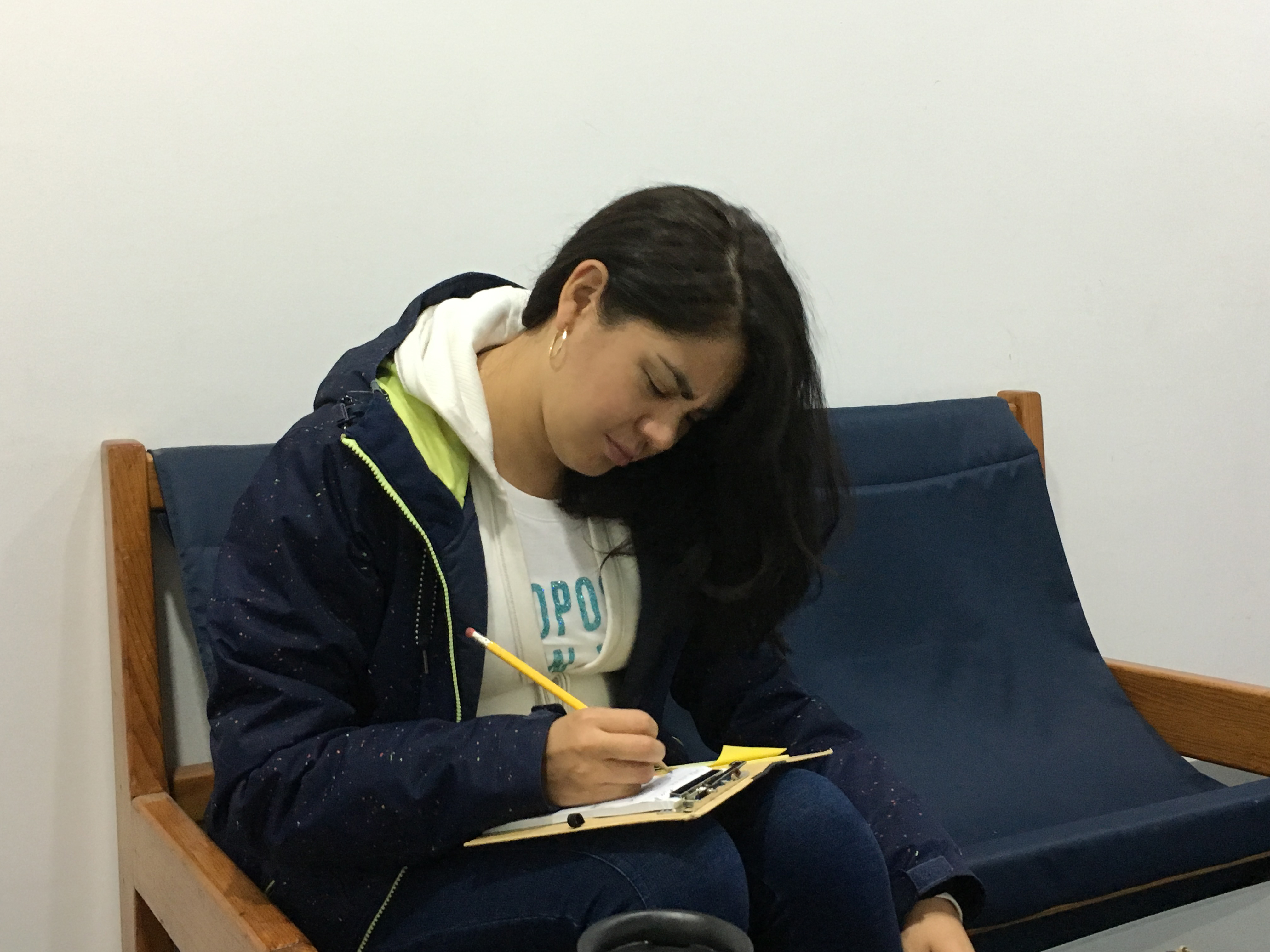
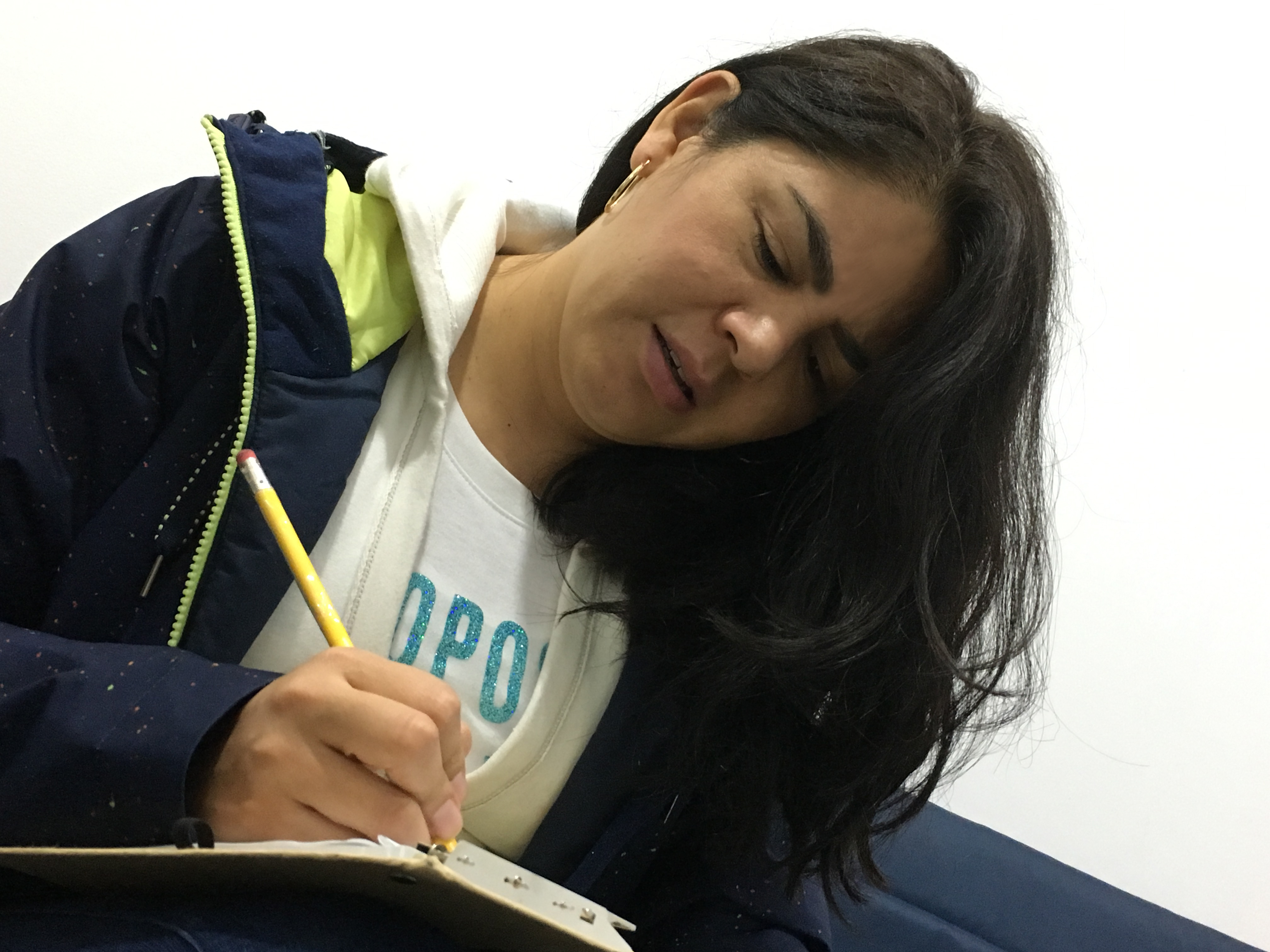
Pérez, L. (2016). Reported speech.
Activity 2
In the following activity, you will listen to a recorded talk between Mr. Marcelo and his friend Valeria.

To listen to the audio click here:

Now that you have identified the questions use them to change them to Reported Speech. Verify the steps you checked at the beginning of the lesson.
Valeria asked Marcelo…
Activity 4
Using the following pictures, create an ending to the story about Sandra and Marcelo. You must use Reported Speech. Once you know what you will be saying, record yourself for one minute. Consider the following aspects:
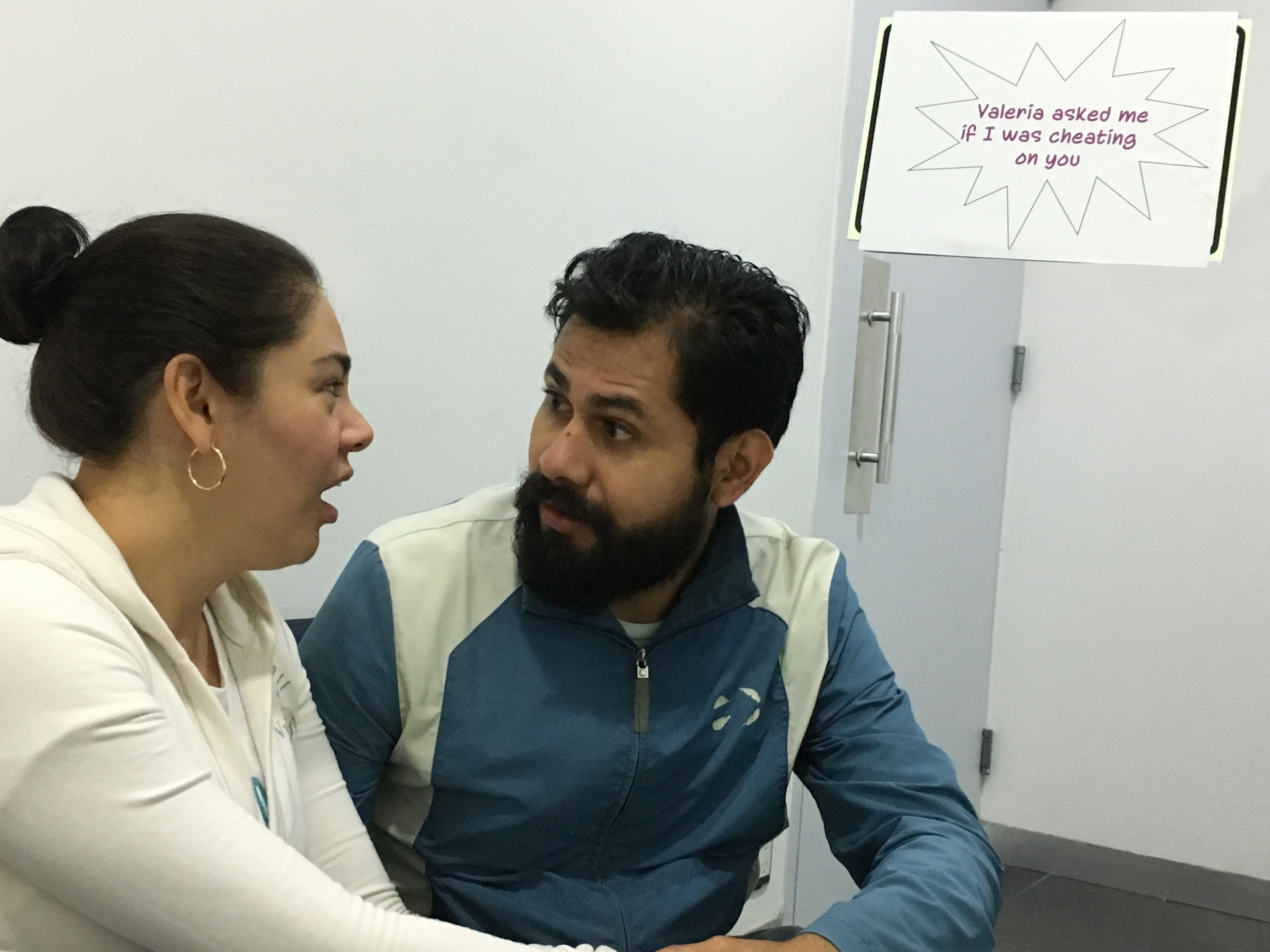
Pérez, L. (2016). Reported speech.
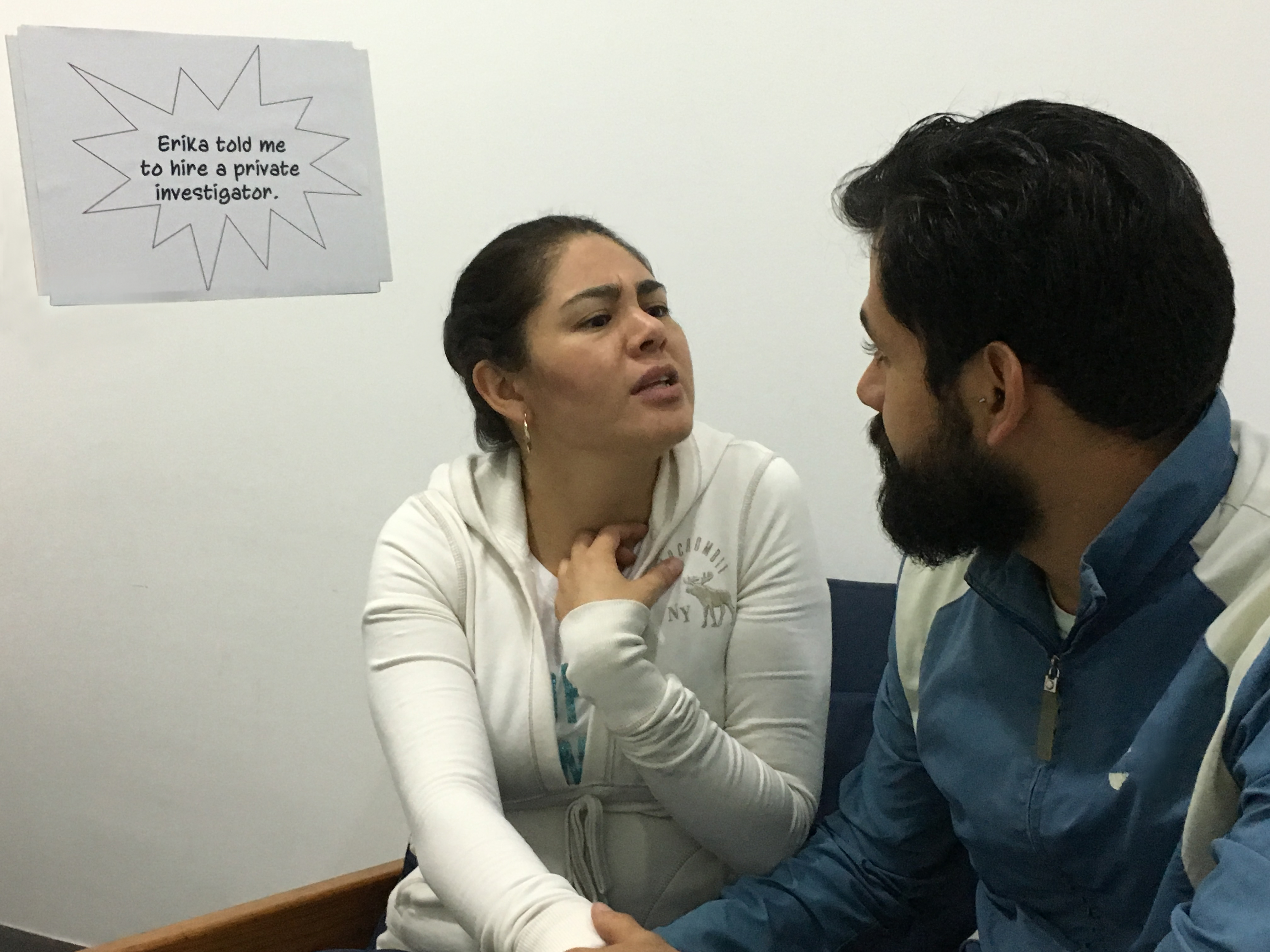
Pérez, L. (2016). Reported speech.
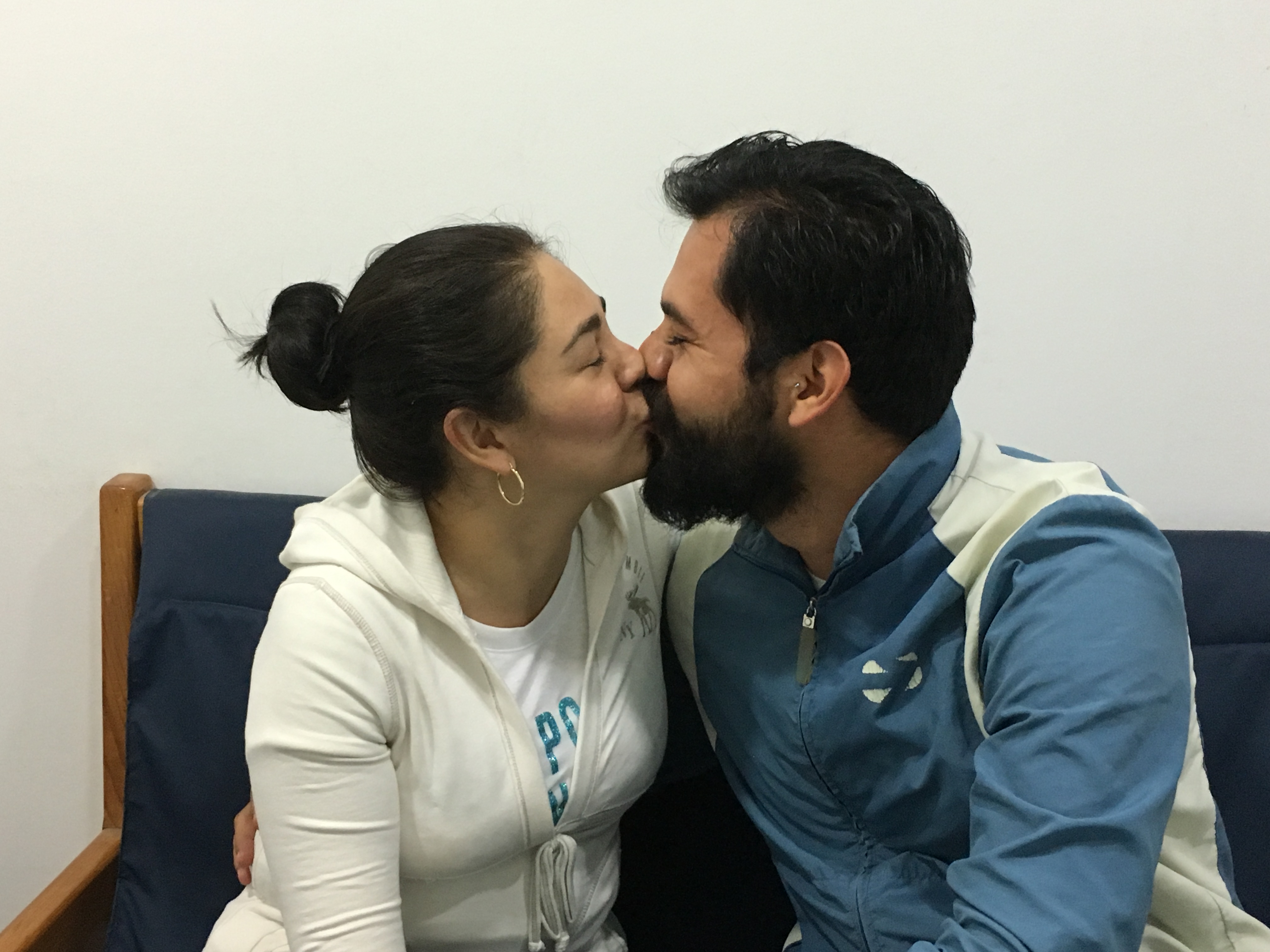
Pérez, L. (2016). Reported speech.

After finishing your audio, record it and evaluate it using the following checklist. To do so, select one scale per parameter. In the end, check your score and reflect on how good you are at giving your opinion about the things you like and dislike.
Self-assessment 1
As you have checked, it is essential to identify the tense and the change in pronouns to make a reported speech question. In the following exercise, choose the corresponding sentence to form the Reported Speech. Note the change of pronouns and tenses.
Self-assessment 2
Match the sentences in direct speech on the left with their corresponding changes in reported speech on the right by matching the correct corresponding report. When you have finished all the sentences, click on CHECK to receive feedback.
You will have as many opportunities as you need until you have all the sentences correct.
Aarts, Bas. (2011). Oxford Modern English Grammmar. New York. Oxford University Press.
Chamot, Anna Uhl, et al. (2008).The learning strategies. New York. Longman.
Eales, F., y Oakes, S. Speak Out Elementary. Pearson Education. 2012.
Oxeden, C., Latham-Koenig, C. y Seligson, P. American English File 1. Oxford University Press. 2008.
Saslow, J., Ascher, A. y Morsberger, R. Top Notch 1. Pearson Longman. 2011.
Soarz, J. y Soarz, L. American Headway 1. Oxford Univerity Press. 2001.
Swan, M. (2010). Good grammar book.New York. Oxford University Press.
Littlejohn, A., & Hicks, D. (1999). Student's book. Stuttgart: Klett.
Marco Común Europeo de Referencia para las lenguas: https://cvc.cervantes.es/ensenanza/biblioteca_ele/marco/cvc_mer.pdf
Coulmas, F. (1986). Direct and indirect speech. Berlin: Mouton de Gruyter.
McCarthy, M., McCarten, J., & Sandiford, H. (n.d.). Touchstone level 1.